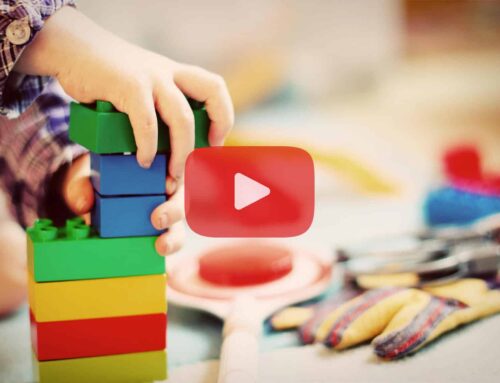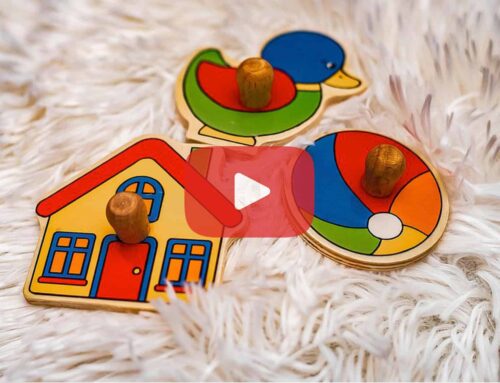Meema Spadola, Postpartum Doula & Certified Lactation Counselor meemadoula.com
As expectant parents, there are so many unknowns and elements that are out of our control. So I am not suggesting that you can plan exactly how your postpartum period will go any more than one can plan exactly how your labor and birth will play out. But you can think ahead about creating a team and having structures and resources in place no matter how things go. After all, even if you have the easiest birth in the world, the happiest baby on the block and feeding your baby is a snap, you still need and deserve support, nurturing, and time to recover! And when you hit the inevitable bump in the postpartum road, it reduces stress and anxiety to have a postpartum plan in place.
If you’re setting out on this adventure with a partner, coming up with a postpartum plan is also a great time for both of you to explore your expectations, needs and concerns about this period. In the heat of the moment is a crummy time to find out that you’re not on the same page. And, if you’re doing this as a single parent, it’s an absolute must to think ahead and identify people who are a part of your support team.
Here are some guiding principles for your postpartum plan…
Enlist helpers not visitors
There is a huge difference between a helper who will come into your home as compared to a visitor. Helpers will happily do a load of laundry, get the dirty dishes out of the sink, make (or bring) you a meal, and hold your baby so you can take a nap or a shower. Visitors tend to sit on your couch, coo over the baby, and chat and drink coffee (when you might rather be napping!). Obviously I’m a fan of postpartum doulas, but if that’s not in your budget, you can enlist trusted family members and friends who can care for you so you get the rest and support you need. (Tip: You can also ask that friends and family contribute to your postpartum doula fund in lieu of buying an item on your baby registry! Or even better, consider setting up your free registry on Be Her Village, which allows you to collect funds for postpartum support and other needs!) Also, think about what house rules you might have regarding wearing a mask, vaccinations (Covid, TDAP, flu), handwashing, etc. Remember that your helpers will likely need guidance about how best to support you. So plan to have a suggested to do list for your team. The more clear you are about your needs, the easier it is for your team to support you!
Parental leave
Who’s staying home and for how long? Can you and/or your partner cobble together a little extra vacation time to extend whatever parental leaves your employers offer? When you and/or your partner return to work, is it possible to ease in with a few days a week at the beginning to make the transition a little easier? Some couples also stagger their parental leaves giving a longer amount of coverage before needing to find a daycare or nanny.
Meals
In addition to stocking up on snacks and doing some big batch cooking of your favorite meals to freeze in advance, think about enlisting your most organized friend to set up a meal delivery calendar for you. Prepping or purchasing meals for a postpartum family is a great task for friends and family who want to help, but don’t have a lot of time to spare. People are assigned a time to come, drop off the food and say hello to the parents and new baby and then get out of your hair. This is way more helpful than yet another onesie or bouquet of flowers! (Meal Train and Lotsa Helping Hands are free websites that make it easy to schedule food deliveries or other assistance.)
Infant Feeding
If you’re planning on nursing and/or pumping to feed your baby, you’ll want to make sure that you have a resource list that includes local lactation pros, support groups, and your local La Leche League leader’s contact info. And if you have any medical issues that may interfere with your supply (like breast surgery, PCOS, or insulin-dependent diabetes), it’s wise to discuss this with your care provider in advance. It’s also worth researching a breastfeeding-supportive/knowledgeable pediatrician and getting a breast pump via your insurance company. See also this Lactation Essentials guide that I wrote that walks parents through the first couple weeks of life postpartum. If you’re planning on combo or formula feeding, it’s wise to read up on safe formula preparation and if your budget allows, consider starting out with ready-to-feed formula.
Mental health care resources
Perinatal mood and anxiety disorders (PMADs) affect up to 20% of pregnant people and new parents, so it’s important to have some resources like this one in place as well as a list of local mental health care professionals who have expertise in PMADs. Look for a therapist with Perinatal Mental Health Certification (PMH-C), which means that they have training specific to working with individuals and couples during fertility, pregnancy, and postpartum period. And even if you aren’t experiencing a PMAD, the postpartum period is emotionally intense. For folks who are used to being successful high achievers, this is often a time that can feel particularly challenging. It’s wise to embrace a mindset that is open to the “less than perfect” and to be forgiving of ourselves and our partner.
Older siblings
If this new baby is not your first, you are likely already making a plan for who will stay with the older sibling(s) when you go into labor. It is equally important to have familiar folks around after the birth who can heap love and attention on your older child(ren). There will be so much excitement about the new baby, so remember to plan some time for you to connect with your older child(ren) for a special cuddle, a book or the familiar bedtime routine.
Sleep plan (for you & your baby!)
Where is your baby sleeping? Parents should be on the same page about sleep philosophy. Research co-sleeping safety so you’re not making unsafe decisions in the middle of the night! As for your own sleep plan, it sounds like a cliché, but the old advice to sleep when your baby sleeps is key, even if it’s only closing your eyes and resting or listening to a relaxation or meditation app. One goal to discuss with your team is for you (and your partner, if applicable) to get at least a one four to five hour stretch of uninterrupted sleep each day, which can help stave off postpartum mood and anxiety disorders (PMADs). This likely won’t happen right away, but it’s something to work towards.
Babywearing
Getting a baby carrier that’s comfortable to wear and that you know how to use safely makes parenting so much easier! (It’s a lifesaver for juggling your newborn and any older siblings.) Don’t assume that what worked for a friend or a family member will work for you. If possible, try before you buy and take the time to learn how to use your baby wearing gear safely and comfortably.
Housekeeping
Ideally you can lean on your helpers to assist with cleaning your home, washing dishes and doing laundry in the early postpartum period. If your budget allows, it’s worth hiring someone to come into your home once a week or bi-weekly to help with this. You might also need to accept that for a while your home might not be as clean and organized as it usually is– a price worth paying for a little bit of extra sleep!
Pet care
This goes more for dogs than for cats, but think ahead about introducing your baby and pet. Line up some help with taking your pooch for a walk in the early weeks when you don’t have the time or energy.
Community
Think about connecting with other new parents. These could be neighbors and friends you already know. They could also be people you find via your local listserv, Facebook group, or at a neighborhood gathering or class for parents and babies. Don’t put pressure on yourself to get out and make friends right away. But when the time is right, connecting with other new parents provides comfort, support and camaraderie.
Recharging & Restoring
Lastly, this is less concrete than the other points, but it’s worth thinking about the following: What calms you? Fills you with joy? Makes you laugh? And if you’re partnered, think about the things that help you feel bonded, secure and connected as a couple. Brainstorm a list and then think about how you can make those things happen for both parents, both individually and together. Then refer back to your list of helpers who can provide the support to make those happen, if needed.
Bottom line: beyond setting up a baby registry and stocking your nursery, let’s normalize planning for the postpartum period! If it feels helpful in getting the ball rolling, check out this postpartum plan template, this one or read the book Build Your Nest by Kestrel Gates. Here’s to a happier, healthier and more supported postpartum period for all!
© Meema Spadola 2022 All Rights Reserved.




